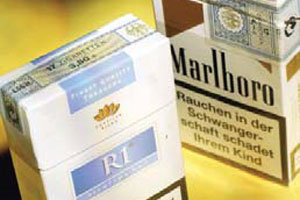
The International Tax Stamp Association is urging the EU to bring the technical standards for its tobacco track and trace system in line with those of the World Health Organization’s (WHO) protocol against illicit cigarette trade, which came into force earlier this week.
While the WHO emphasizes the need for suppliers of track and trace control systems to be fully independent of the tobacco industry, the architecture promoted under the EU Tobacco Products Directive (TPD) delegates key tasks to the tobacco industry.
The association has launched a legal challenge to highlight its concern.
“We have long voiced our concerns that the EU TPD conflicts with the protocol on a number of points, notably in allowing the tobacco industry to unnecessarily perform key tasks assigned to the Parties in contravention with articles 8-12 and 8-13,” said Nicola Sudan, general secretary of ITSA.
“Furthermore, the EU model presents an even greater risk in other countries around the world where the tobacco industry exerts a powerful economic and political influence on government and law enforcement agencies.”
ITSA has published guidance on security and traceability for tobacco products which it has shared with key stakeholders to help address the situation.
The guidance provides advice on how tax stamp programs can combine the traceability and security feature requirements specified in the TPD technical standards, while also providing a fully independent sourcing solution in compliance with the WHO Protocol.
ITSA also recommends that all the authentication elements required by the TPD should be provided by a third-party provider and combined with the digital data in the unique identifier (UID) in a multi-layered security bearer, such as a tax stamp. Combining the digital data with authentication features would add important anti-fraud protection assuring the UID cannot be fraudulently duplicated.
EU tracing system decried











